Providing tax-free reimbursements of a minister’s business expenses is a great way to save taxes. Not only does this tax-saving strategy apply to minister employees, it also applies equally to non-minister employees as well.
Here is just a partial list of the types of business expenses that churches can reimburse to their employees:
- Business travel,
- Office supplies,
- Research materials,
- Business meals,
- Business use of cell phone,
- Business use of home internet.
Of course, the expenses to be reimbursed must be ordinary and necessary. For example, if your pastor is going to meet another local pastor at a café for lunch to discuss the upcoming community revival services, your church can reimburse the pastor for the mileage to and from the café. If your pastor pays for the entire meal (both his portion and the other pastor’s portion), the church may reimburse your pastor for the cost of the meal as well. However, if the two pastors decide that they would rather have their meeting at a luxury resort in the Caribbean rather than at the local café, the expenses for the meeting at the luxury resort probably do not meet the ordinary and necessary test.
One of the most important things to remember about reimbursing employees on a tax-free basis is the reimbursements must be paid pursuant to an accountable plan. In other words, the employee must give an accounting for the expenses in order for the reimbursement to be tax-free. If an employee is reimbursed for an expense and the employee has not provided proper documentation to substantiate the expense, the reimbursement must be reported as taxable income to the employee rather than as a tax-free reimbursement. For example, if an employee is reimbursed $50 per month for business use of cell phone, but the employee does not submit an expense report and copy of the cell phone bill, the employee is not providing an accounting for the expense and therefore the $100 per month reimbursement should be reported as taxable wages on the employee’s W-2.
A common area of confusion for ministers is their car allowance or mileage reimbursement. If a minister submits a mileage log identifying the date, business purpose and mileage for each business trip, the minister may be reimbursed using the federal standard mileage rate on a tax-free basis. If a minister is provided a monthly auto allowance which is not substantiated by a mileage log, the auto allowance must be reported as taxable wages. Therefore, we always recommend that a minister be reimbursed for their ministry mileage rather than receiving an auto allowance. Please remember that commuting from home to your regular place of work is a personal expense and cannot be reimbursed. The federal standard mileage rate for 2020 is $.575 per mile. An employer is permitted to reimburse less than the federal standard mileage rate, but may not reimburse at a rate higher than the federal standard mileage rate.
I hope you find this series enlightening, beneficial and practical. I will strive to help you understand the peculiarities of ministerial taxation and provide practical steps to minimize your tax burden. Feel free to refer my blog to your minister friends who may benefit from this information. If you are an association of churches, feel free to place a link to our blog (https://www.flockbase.com/flockbase-blog/) on your website so that the ministers in your association can easily access it.
Up Next Week: Educational Benefits for Minister Employees

Jerry Walker is a CPA with more than 28 years of tax and accounting experience. Throughout his career, he has provided tax and accounting services to scores of ministers and churches. He is also a founding partner in FlockBase Software, “The Affordable Church Software Solution.”
DISCLAIMER:
Any accounting, business, or tax advice contained in this communication, is not intended as a thorough, in-depth analysis of specific issues, nor a substitute for a formal opinion, nor is it sufficient to avoid tax-related penalties. If desired, (Firm) would be pleased to perform the requisite research and provide you with a detailed written analysis. Such an engagement may be the subject of a separate engagement letter that would define the scope and limits of the desired consultation services.
